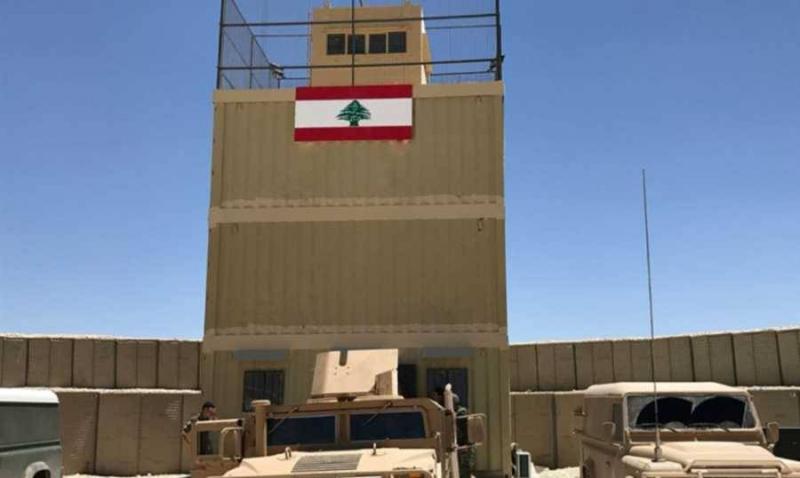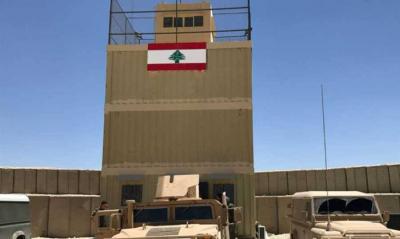A detailed examination of the murder of the Lebanese Forces coordinator in the Jbeil area, Pascal Sleiman, and the arrest of Lebanese security forces of individuals suspected of executing the crime, reveals the active presence of organized gangs and murder mafias, particularly since the beginning of this year, operating between Lebanon and Syria. The operations are not limited to the kidnapping of Lebanese citizens and taking them into Syrian territory for ransom; they also include the abduction of Syrians heading to Lebanon. According to the Syrian Observatory for Human Rights, it is likely that these gangs are active on both sides of the border with the support of security personnel.
On Tuesday, the Lebanese Army announced the successful arrest of most members of the Syrian gang involved in Sleiman’s kidnapping. Investigations revealed that the kidnapped individual was killed by them while they attempted to steal his car in the Jbeil area, and they then transported his body to Syria. A security source told "Asharq Al-Awsat" that there are six individuals arrested in connection with the kidnapping and murder of Sleiman; four of them participated in the crime, while the other two remain in hiding within Syrian territory.
**Responsibility of the Syrian State**
Bassan Moulawi, the Minister of Interior and Municipalities in Lebanon's caretaker government, noted that the investigations into Sleiman's murder are still preliminary and within the army's purview. In a statement to "Asharq Al-Awsat," he emphasized that the Lebanese people's questions about the details of the operation and whether it was a routine theft or something more serious are legitimate and can only be answered by the final results of the investigation, which should be disclosed to clarify and address all queries.
Moulawi explained that efforts are currently underway to trace the route of the stolen vehicle used by the kidnappers and whether they attempted other operations in the days leading up to Sleiman's kidnapping and murder. He added that the gangs operating on the Syrian border are not only engaged in kidnappings but also smuggling Captagon and Syrian nationals into Lebanon through illegal crossings, stressing that the Syrian state has responsibility and a role in pursuing these gangs, which it is not fulfilling. Moulawi stated, "We refused a Syrian request to remove the surveillance towers along the border; instead, we insist on reinforcing them in an attempt to combat these operations."
**Escalation of Kidnapping and Murder**
For his part, Jawad Adra, president of the International Information Foundation, announced a noticeable increase in kidnapping and murder crimes in 2024, noting that ransom kidnappings rose to eight operations in the first three months of this year, compared to three operations during the same period last year. Meanwhile, the number of fatalities (security and criminal) increased from 34 last year to 83 this year.
Mohamed Shams al-Din, a researcher at the International Information Foundation, does not rule out that the actual number of kidnappings may be greater than what is reported by Lebanese security forces, as many families of victims resort to resolving such issues without reporting them, directly paying the ransom to the kidnappers. He stated to "Asharq Al-Awsat" that organized gangs conduct these operations, with someone monitoring the target, another executing the kidnapping, and someone else negotiating with the families.
Shams al-Din points out that while murder operations increased from 29 to 42 in the first three months of this year, car thefts decreased from 328 last year to 185 this year.
**The Shuja Ali Gang**
The Syrian Observatory for Human Rights reports a significant increase in kidnapping incidents since the beginning of this year, causing alarm among residents in Syria, especially in areas controlled by the regime, particularly in the Homs countryside near the Syrian-Lebanese border. There is hardly a week that passes without registering one or more cases of abductions and disappearances, while others are released for substantial ransoms, amid the complete inability of the regime's security apparatus to curb the spread of these operations and eliminate the gangs behind them, with the Shuja Ali gang being one of the most notable, closely linked to some heads of security branches of the regime, notorious for kidnapping civilians in the Homs countryside while they attempt to cross the Syrian-Lebanese border or even head from Homs towards other Syrian provinces.
Activists from the Syrian Observatory for Human Rights have documented numerous abduction cases over the past months attributed to the Shuja Ali gang, with others being released after paying large sums of money. The latest incident occurred on Tuesday, where a kidnapped individual was released after his family paid one billion Syrian pounds following his abduction since mid-Ramadan in the village of Al-Farhaniya Al-Sharqiya north of Homs.
Rami Abdul Rahman, the director of the Syrian Observatory for Human Rights, does not rule out that the Shuja Ali gang may be behind the murder of the Lebanese Forces official Pascal Sleiman, as Ali is responsible for smuggling crossings in the Homs countryside in the area where Sleiman's body was found, which is under the control of Hezbollah in Syria. Abdul Rahman added to "Asharq Al-Awsat" that most of the kidnapping gang leaders in the area are supported by Syrian intelligence.




